Part of a booklet accompanying a Jim Jarmusch retrospective at the Wexner Center for the Arts at The Ohio State University, October 2001. -– J.R.
A child of the New Wave who spent time at the Paris Cinémathèque, was Nicholas Ray’s personal assistant on Lightning Over Water — and Sam Fuller’s costar in Tigrero [Mika Kaurasmaki] many years later — Jim Jarmusch has loved films even longer than he’s been making them. Signs of this love are fully apparent in his tributes to John Cassavetes, Fuller, and Robert Mitchum, as well as in a recent phone conversation I had with him about his selections of favorite films by others to accompany his own films at the Wexner Center.
J.R.
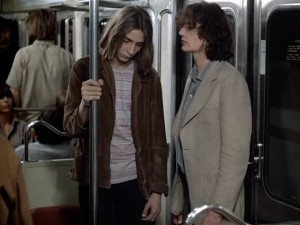
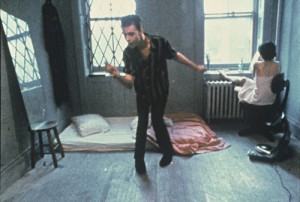
I want to focus mainly on the pairings you’ve come up with. Why, for instance, show The Devil, Probably with Permanent Vacation, your first film?
I don’t really know. I saw The Devil, Probably a long time ago, and I’ve never seen it since. I remember it being about a young guy in Paris who’s suicidal. And it’s [Robert] Bresson. Before I saw this movie, when I used to go to Paris, I’d sit at the end of Île de la Cité, and I think that’s where the film ends. Read more
In the Fray
By Jonathan Rosenbaum
Dec 28, 2001 11:37 AM
Dear David, Roger, Sarah, and Tony,
I’m afraid that going to see Monster’s Ball or Black Hawk Down for the purposes of this exchange isn’t even an option for me. Neither has opened yet in Chicago, and though the first and possibly the second got special screenings for local reviewers willing to go beyond Chicago for their 10-best lists, I feel my first duty is to address what Chicagoans can see in my own list for the Reader. In any case, I’m looking forward to seeing Monster’s Ball because of my liking for Billy Bob Thornton and Halle Berry, but the very thought of going to see any war film for pleasure right now gives me the creeps. Though, come to think of it, I’d probably rather see Black Hawk Down than even think again about Audition, one of David’s favorites — a movie whose view of mankind, including audience members, is for me a lot bleaker than anything found in A.I.
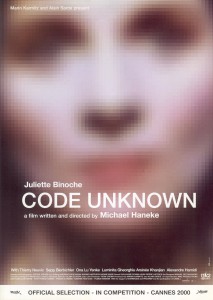
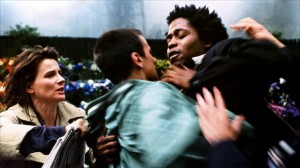
On the other hand, like Roger, I could cite some first-rate movies that exist mainly on television, such as Spike Lee’s A Huey P. Newton Story (which I saw at the Vancouver International Film Festival), even if it’s basically a record of a powerful performance by Roger Guenveur Smith, or Code Unknown, which I saw on the Sundance Channel (where it’s been playing for ages) on Christmas Eve, and which opens here theatrically next week. Read more
From the Chicago Reader (January 4, 2002). — J.R.
There is no such thing as film production. It is a joke, as much as the production of literature, pictures, or music. There are no good years for films, like good years for wine. A great film is an accident, a banana skin under the feet of dogma; and the films that we try to defend are a few of those that despise rules. — Jean Cocteau, 1949
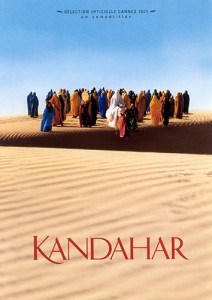
Two events in the year 2001 changed my relation to movies — one public and momentous, the other private and relatively trivial. The public event, of course, took place on September 11, and for many Americans, myself included, it broadened dramatically what we mean when we say “us.” It changed the way we see the world as well as the U.S., and for me the change in the way we see the world was more important. Some of my compatriots may still not be able to move mentally beyond this country, even theoretically; others may be considering the possibility for the first time. I saw better than ever the role movies can play in helping us understand the world from other perspectives, and the sudden outpouring of interest in films about Afghanistan — most notably Jung (War): In the Land of the Mujaheddin and Mohsen Makhmalbaf’s Kandahar — was only the most obvious sign that this is happening. Read more





